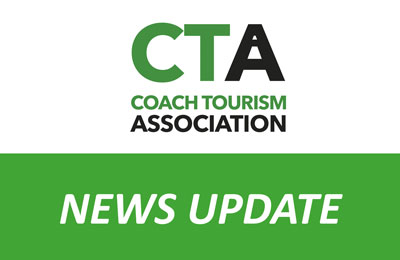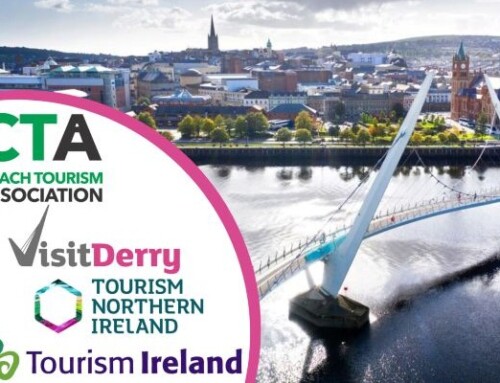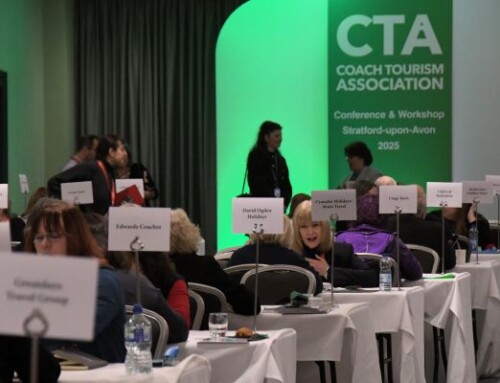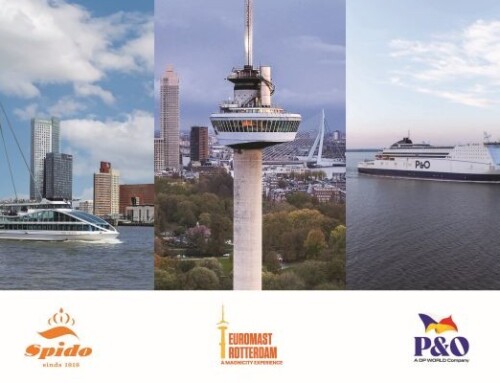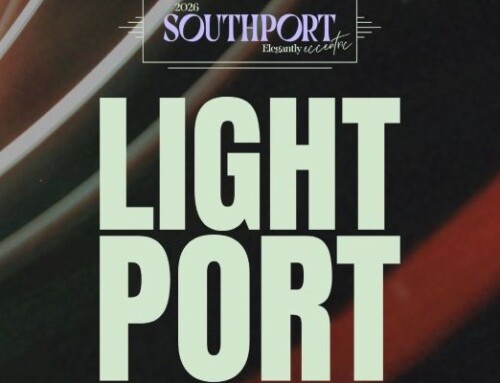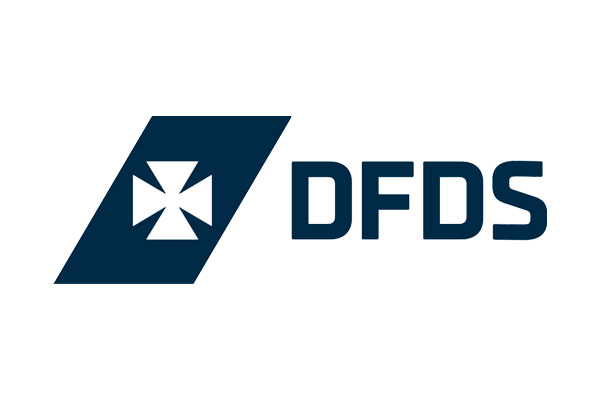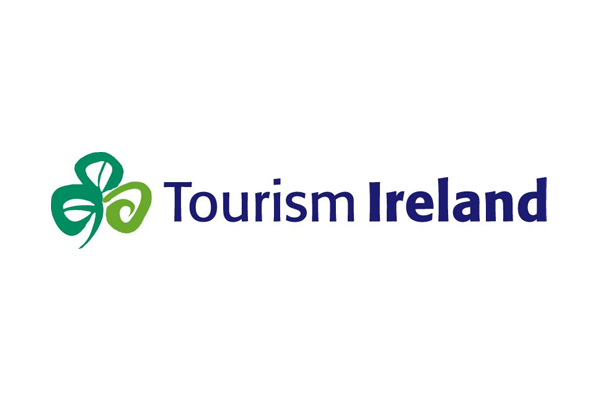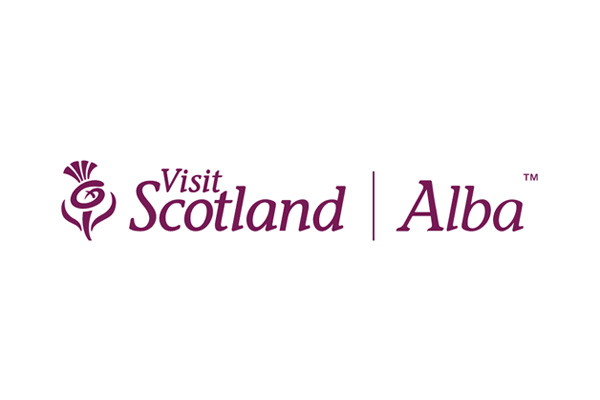COVID-19 Updates – week commencing 09/11/20
More updates of developments from the government and various links to interpretation and guidance.
Go to date:
9 November 2020 …
Visit Wales update:
Guidance about the coronavirus rules in Wales in place from Monday 9 November
Following the end of the firebreak, a new set of national rules will be introduced, covering how people can meet and how the public sector and businesses operate.
Frequently Asked Questions (FAQs) regarding the above are online, as are the updated Health Protection (Coronavirus Restrictions) (No. 4) (Wales) Regulations 2020.
FAQs include information on staying in accommodation, this is restricted to families living together, not extended families e.g.
Who can I stay with in holiday accommodation such as hotels, tents, caravans or self-catering accommodation?
- You will only be able to share holiday accommodation with the people you live with. This helps to reduce the risk of coronavirus being transmitted significantly, as sleeping in close proximity to other people carries a high risk of transmission due to the length of time you spend near each other.
Hospitality re-opening (pubs, bars, cafés and restaurants) – mitigating guidance for Wales post- firebreak is now available online.
Read the First Minister’s statement on the new national COVID measures for Wales in full on Gov.Wales.
£200 million ERF Lockdown Business Fund remains open
Businesses in Wales affected by the coronavirus pandemic can still get support through our Economic Resilience Fund (ERF) Phase 3. The £200m Lockdown Business Fund element remains open in most parts of Wales – this fund is to help those directly affected by the shorter term challenges of having to close during the firebreak, as well as those subject to local restrictions before it started.
The £100m Business Development Grant element of ERF has been paused to allow an assessment of applications to be undertaken – this fund is to help firms prepare themselves for the longer term challenges for a post-COVID.
Further details are available on the Business Wales website.
Tourism research
A summary of recent tourism research for Wales and the UK is now available. This includes details of COVID-19 related Welsh Government research, and links to further external sources.
Reminder on cross-border travel as Wales’ firebreak ends
Travel between Wales and England will continue to be restricted as Wales’ firebreak ends and England’s month-long lockdown gets underway, Minister for Economy and North Wales Ken Skates today said. There will be no restrictions on travel within Wales from 9 November but the new national measures, which will come into force will mean travel will only be possible across the Wales-England border with a reasonable excuse. Examples of a reasonable excuse include travelling for work, education, a medical appointment, legal requirement or compassionate grounds.
The English lockdown also means cross-border travel is not allowed unless one of the exceptions in the English regulations applies. You can read the full press release at Gov.Wales.
Tourism Alliance update:
Wales lockdown ends
The “Firebreak” lockdown in Wales ended today. From a tourism perspective, the main points of the post lockdown restrictions that are now in place are:
-
- Tourism businesses that were shut when the lockdown came into effect can now reopen
- People in Wales can travel anywhere within Wales – however, travel outside Wales is only allowed for limited reasons which do not include tourism
- People in England are not permitted to travel into Wales for tourism purposes
- While all tourism accommodation can now open, people can only share holiday accommodation with the people they live with.
- Pubs, Restaurants and Bars are open but people are allowed to meet with others outside their household, as long as they maintain physical distancing and the size of the group does not exceed 4 people (not including any children aged under 11).
- All visitor attractions are now able to open provided that visitors adhere to rules regarding visiting only as a household or as four people from more than one household (not including children aged under 11)
Here is a comprehensive Q&A on the new post firebreak rules in Wales
https://gov.wales/coronavirus-regulations-guidance
Denmark Travel Restrictions
Restrictions on travel into the UK from Denmark have been tightened again as a result of the Coronavirus outbreak on mink farms and the subsequent transmission of this new strain into local communities. From today,
-
- Non-UK resident HGV drivers have been added to those restrictions
- UK resident HGV drivers arriving from Denmark are required to self-isolate on entry to England
- All passenger vessels and accompanied freight from Denmark will be halted.
British Nationals and residents who are returning from Denmark will be required to show a complete passenger locator form on arrival into the UK
https://www.gov.uk/government/news/measures-to-protect-england-from-new-covid-19-strain-extended
IPS Figures for Q2
This will come as absolutely no surprise to anyone but the IPS figures for Q2 (April – June) have been published and show that visitor numbers where down 96% and spend was down 97%. This means that, in just three months, the UK lost over £7bn in tourism-related overseas earnings which supported 110,000 FTE jobs. Here’s the figures from VisitBritain
|
Q2 2020 |
Growth |
Year to date (Jan-Jun’20) |
Growth |
Rolling 12 months (Jul’19-Jun’20) |
Growth |
|
|
ALL VISITS (000) |
398 |
-96% |
7,390 |
-60% |
29,550 |
-26% |
|
Spend (£ million) |
218 |
-97% |
4,560 |
-61% |
21,310 |
-18% |
|
By Journey purpose |
||||||
|
Holiday |
177 |
-96% |
2,777 |
-63% |
12,210 |
-26% |
|
VFR |
112 |
-96% |
2,309 |
-59% |
9,071 |
-25% |
|
Business |
85 |
-96% |
1,746 |
-60% |
6,103 |
-29% |
|
Miscellaneous |
24 |
-96% |
561 |
-55% |
2,170 |
-22% |
|
By Global region |
||||||
|
Europe |
298 |
-96% |
5,225 |
-60% |
19,596 |
-27% |
|
North America |
40 |
-97% |
834 |
-66% |
3,769 |
-28% |
|
Rest of World |
60 |
-97% |
1,334 |
-60% |
6,188 |
-22% |
Updated Guidance for Restaurants, Bars, Cafés and Pubs
The Primary Government Guidance for Working Safely During Coronavirus has been updated for Restaurant, bar, café and pub operators to reflect recent changes in Government rules for these businesses. Namely:
-
- Hospitality venues like restaurants, bars and pubs must close, but can still provide takeaway and delivery services.
- Sale of alcohol is permitted via pre-order for collection or delivery services only.
- Anyone who can work from home, should do so
- Clinically extremely vulnerable individuals should not attend work if they can’t work from home for this period of restrictions
Changes to Bounce Back Loans
The Guidance on Bounce back Loans has been updated to people to top up existing loans, extend the loan period, make interest-only repayments, or pause repayments. Specifically:
-
- If you already have a Bounce Back Loan but borrowed less than you were entitled to, from 10 November you can top up your existing loan to your maximum amount. You must request the top-up by 31 January 2021.
Also, before your first repayment is due, your lender will contact you about further options to:
-
- extend the term of your loan to 10 years
- move to interest-only repayments for a period of 6 months (you can use this option up to 3 times)
- pause your repayments for a period of 6 months if you have already made at least 6 repayments (you can use this option once)
https://www.gov.uk/guidance/apply-for-a-coronavirus-bounce-back-loan
10 November 2020 …
CBI webinar
The CBI is hosting a webinar for SMEs on ‘managing employees mental health in the changing working
environment’ on Thursday 12 November 10- 10.45
The event will look at:
• How culture, leadership, management capabilities and job design can
all affect the wellbeing of a workforce
• How to address fairness and work reallocation of work tasks
• How other SME’s are managing remote working and what their concerns
are
• What the CBI is focusing on in this area
• What practical steps the CBI is undertaking to ensure the wellbeing
of its remote working staff
Tourism Alliance update:
DCMS has just forwarded another batch of answers to Questions on lockdown rules and regulations
Q. Can elite sports teams staying in hotels eat together in the hotel restaurant?
A. Restaurants and bars within guest accommodation should remain closed; there are no exemptions to this in the regulations meaning that hotels do not have the cover to provide group dining or open restaurants for elite athletes. The exemption for elite athletes refers only to their need for accommodation for the purposes of training or competition. Food and/or drink including alcohol can be provided through room service as long as it is ordered by phone or online
Q. Will outdoor events at hotels be allowed to continue after Thursday?
A. Outdoor events should not be taking place during the period of national restrictions.
Q. Are business meetings allowed in conference centres and exhibition halls?
A. Business meetings and events are advised against, but may take place with up to a total of 30 people if reasonably necessary – for example for the purposes of work that cannot be done at home – if social distancing can be maintained and the venue can demonstrate it has followed the COVID-19 guidance. Event spaces, including in conference centres and exhibition halls, can be used for reasons permitted by law, including for business events of up to 30 where reasonably necessary, for education and training purposes where reasonably necessary, or to provide socially beneficial public services such as Nightingale hospitals or food banks. Conference centres and exhibition halls should remain closed for conferences, exhibitions, trade shows, private dining or banqueting events.
Q. Can food and drink be served at a business meeting?
A. Basic catering and light refreshments can be provided where reasonably required at business meetings (for up to 30 people) and at education, work and training events. Food and drink should be served in the room where the meeting takes place and consumed by attendees while they are seated. We expect people to act reasonably and responsibly so the purpose of the meeting should not be the meal itself and private dining/banqueting should still not be happening.
11 November 2020 …
Tourism Alliance updates:
The Government published the guidance for the extended CJRS last night. The guidance is an updated version of the original guidance with details of how to claim for periods after 1 November 2020. Of particular note is the reference period for calculating claims is prior to 18th March 2020 for people who were employed before this date. So if employees have taken cuts in hours or pay during since 19th March, this will not impact on their furlough pay.
Main Extended CJRS Guidance
Some of the key points are
-
- You can claim for any employees who were employed on 30 October 2020, as long as you have made a PAYE RTI submission to HMRC between the 20 March 2020 and 30 October 2020, notifying a payment of earnings for that employee
- You do not need to have previously claimed for an employee before the 30 October 2020 to claim for periods from 1 November 2020.
- Employers can furlough employees for any amount of time and any work pattern
- For periods from 1 November 2020, you will only need to pay for the cost of employer NICs and pension costs.
- There is no maximum number of employees you can claim for from 1 November 2020.
- Employees continue to maintain all their employment rights and accrue holiday pay as previously
https://www.gov.uk/guidance/claim-for-wage-costs-through-the-coronavirus-job-retention-scheme
Check Which Employees Can Be Furloughed
There is separate guidance detailing how the employment status of workers impacts on a businesses ability to furlough them. Some of the key points here are:
-
- For employees on Fixed Term Contracts, if fixed term contract has not already expired, it can be extended or renewed for claim periods after 1 November 2020
- If the employee’s fixed term contract expired after 23 September, they can be re-employed and claimed for as long as the other relevant eligibility criteria are met.
- Apprentices can be furloughed in the same way as other employees and they can continue to train whilst on furlough.
- For claim periods after 1 November 2020, a new employer is eligible to claim in respect of employees of a previous business transferred if the TUPE or PAYE business succession rules apply to the change in ownership. The employees being claimed for should have been employed by their prior employer on or before 30 October 2020 and transferred from them to their new employer on or before 1 September 2020
- If you made employees redundant, or they stopped working for you on or after 23 September 2020 you can re-employ them and put them on furlough.
- The government is reviewing whether employers should be eligible to claim for employees serving contractual or statutory notice periods and will change the approach for claim periods starting on or after 1 December 2020, with further guidance published in late November.
Calculate How Much You Can Claim
This is the online calculator that will help you determine how much you can claim. The key points here are:
For Employees on Fixed Pay
-
- the reference period is the last pay period ending on or before 19 March 2020 for employees who either:
-
- were on your payroll on 19 March 2020, that is you made a payment of earnings to them in the tax year 2019 to 2020 which was reported to HMRC on a Real Time Information (RTI) Full Payment Submission (FPS) on or before 19 March 2020
- you made a valid CJRS claim for in a claim period ending any time on or before 31 October 2020
-
- For all other employees, the reference period is the last pay period ending on or before 30 October 2020;
- the reference period is the last pay period ending on or before 19 March 2020 for employees who either:
For Employees’ on Variable Pay
- who were on your payroll on 19 March 2020, you should calculate 80% of the higher of:
- the wages earned in the corresponding calendar period in the tax year 2019 to 2020
- the average wages payable in the tax year 2019 to 2020
- For all other employees’ you should calculate 80% of the average wages payable between 6 April 2020 (or, if later, the date the employment started) and the day before they are furloughed on or after 1 November 2020.
How To Claim
Once you have calculated how much you can claim, there is a separate online portal for making an application. The cut-off dates for claims are:
|
Claim for furlough days in |
Claim must be submitted by |
|
November 2020 |
14 December 2020 |
|
December 2020 |
14 January 2021 |
|
January 2021 |
15 February 2021 |
|
February 2021 |
15 March 2021 |
|
March 2021 |
14 April 2021 |
https://www.gov.uk/guidance/claim-for-wages-through-the-coronavirus-job-retention-scheme
Finally, it is important to note that 30 November 2020 is the last day employers can submit or change claims for periods ending on or before 31 October 2020.
Reclaiming Statutory Sick Pay
The guidance to employers on reclaiming statutory Sick Pay has been updated so that now the repayment will cover up to 2 weeks SSP starting from the first qualifying day of sickness, if an employee is unable to work because they have been advised by letter to shield because they’re clinically extremely vulnerable and at very high risk of severe illness from coronavirus.
Clarification on Reopening Date
I’ve had a few queries regarding whether England comes out of lockdown on the 2nd or 3rd of December. The end of the lockdown is a 00:01 on Thursday 3rd December – this being 28 days after the lockdown started (5th Nov).
The lockdown guidance reads:
“The new measures will apply nationally for four weeks up to and including Wednesday 2 December.”
https://www.gov.uk/guidance/new-national-restrictions-from-5-november
Updates to Lockdown Grant Guidance
The Guidance for Local Restrictions Support Grants and Additional Restrictions Grants has been updated to explain the Local Restrictions Support Grant strands and further explain the Additional Restrictions Grant. However, this update is more directed to Local Authorities on their management of the Grants rather than business eligibility so we await further guidance for businesses on these grants
Grants for Accommodation
One of the most pressing questions that I’ve been getting is whether accommodation businesses are eligible for the Local Restrictions Support Grant (Closed) or the discretionary Additional Restrictions Grant. I am continuing to raise this with DCMS and it was again brought-up at today’s Tourism Industry Council meeting. However, DCMS still haven’t received guidance on this from the Cabinet Office but recognise how urgently the industry needs this and will come back to us as soon as possible.
Extended CJR Scheme
Another outstanding issue is the full detailed guidance for the extended Coronavirus Job Retention Scheme. This was due to be published today but seems to be delayed. I’ve put in a couple of questions to DCMS about the eligibility criteria for this and the base working hours and pay that are to be used to calculate payments as there are a number of examples of where staff have voluntarily taken a reduction in hours or pay to retain their positions and if this is taken as the new base for calculating furlough payments it will further lower their already reduced pay and put them into financial difficulty. Hopefully the detailed guidance, when it is published will use the original pre-Covid hours and pay for this calculation.
Kick Start Gateways
Another update to the Guidance for the Kick Start Guidance to say that requests to be added to the Kickstart gateway list will no longer be accepted after 16 November 2020. However, organisations can still operate as a Kickstart gateway and submit a Kickstart Scheme grant application even if they’re not on the list.
https://www.gov.uk/guidance/help-employers-apply-for-a-kickstart-scheme-grant-kickstart-gateway
CPT update:
CORONAVIRUS JOB RETENTION SCHEME – IMPORTANT DATES
HMRC has released updated guidance for employers wishing to claim through the extended Coronavirus Job Retention Scheme
Going forward HMRC will introduce monthly deadlines for claims
Claims for periods starting on or after 1 November must be submitted within 14 calendar days after the end of the month they relate to
It is important that employers wishing to make a claim for any period up to the original end date of the scheme (31 October) submit their claim on or before 30 November. Claims for these periods will not be accepted after that date
HMRC also reiterate that employers must keep records that support the amount of CJRS grant claimed, as these may be subject to an audit in the future
The updated guidance can be found on the link below
12 November 2020 …
Tourism Alliance updates:
HMRC To Increase Investigations
HMRC have published a policy document outlining how they intend to work with businesses during the Coronavirus Outbreak. Of particular note is the emphasis that HMRC are now putting on reducing fraud related to the claims that businesses have made for the various support mechanisms.
“we are starting to investigate claims in depth. For the Coronavirus Job Retention Scheme, we will be paying particular attention to claims that are out of step with the PAYE data we hold, and the nearly 15,000 calls that have come into our fraud hotline services.
Where people have made an honest mistake, we want to help people correct them. No one who has tried to do the right thing but made an honest mistake has any need to be concerned, as long as they put it right. Claimants can correct any mistake they’ve made within 90 days of receiving the grant without fear of a penalty or other sanction. Where employers don’t take the opportunity to correct and don’t respond to our prompts, we will carry out investigations into their affairs.”
It is therefore important that businesses check that their claims have been made in accordance with the criteria of the various schemes and that they have not been overpaid.
Save Britain’s Coach Companies
The Labour Party has issued a briefing on a campaign that they are undertaking with the support of CPT and CTA to help coach operators – one of the sectors of the tourism industry that has been overlooked in terms of eligibility for support funding that was meant to include all tourism and hospitality businesses. The three key asks of the campaign are:
-
- The Government to be much more targeted in the way it uses financial support – including the availability of loans – for firms in for industries that have faced the toughest challenges this summer and continue to face difficult months ahead
- The Government to provide clearer guidance to operators and stakeholders in the tourism industry so that, where it is possible to safely do so, passengers can travel by coach
- The Government to come to the House of Commons and give frequent updates on these issues
CPT updates:
ADDITIONAL RESTRICTIONS GRANT – BUSINESSES NOT COVERED BY OTHER SUPPORT GRANTS
New guidance on eligibility for the Coronavirus Additional Restrictions Grant has been published which could be of benefit to Coach operators who have no work as a result of the current lockdown restrictions
The new guidance states that local councils have the freedom to determine the eligibility criteria for these grants
However, the Government expects the funding to be used to help those businesses which while not legally forced to close are nonetheless severely impacted by the restrictions
This could include:
- businesses which supply the retail, hospitality, and leisure sectors
- businesses in the events sector
- business required to close but which do not pay business rates
This should be good news for many Coach operators and other tourism businesses that have missed out on previous grants during the pandemic
Further details can be found on the link below
CHECK IF YOU ARE ELIGIBLE FOR THE ARG
LOCAL RESTRICTIONS SUPPORT GRANT – FOR OPEN BUSINESSES
The Coronavirus Local Restrictions Support Grant is intended to support businesses that have been severely impacted due to temporary local restrictions
Businesses that have not had to close but which have been severely impacted due to local restrictions (High or Very High Alert Levels) may be eligible for LRSG (Open)
Local councils have the discretion to provide grant funding for businesses under this scheme
To be eligible a business must be:
- in an area subject to ‘High’ or ‘Very High’ local restrictions since 1 August 2020 and has been severely impacted because of the local restrictions
- trading before the introduction of Local COVID alert level: High restrictions
- has not had to close but has been impacted by local restrictions
A business that is in administration, insolvent or has been struck off the Companies House register will not be eligible for these support grants
Further details can be found on the link below
CHECK IF YOU ARE ELIGIBLE FOR THE LRSG (OPEN)
Tourism Alliance update:
Eligible for the Coronavirus Additional Restrictions Grant
A short piece of guidance on eligibility for the ARG has been published which stated that Local councils have the freedom to determine the eligibility criteria for these grants. However, the government expects the funding to help those businesses which – while not legally forced to close – are nonetheless severely impacted by the restrictions
This could include:
-
- businesses which supply the retail, hospitality, and leisure sectors
- businesses in the events sector
- business required to close but which do not pay business rates
This should be good news for many tourism businesses that has missed out on previous grants.
Eligible For The Coronavirus Local Restrictions Support Grant (for closed businesses)
Similarly, guidance on eligibility for the LRS Grant has been published. The eligibility criteria are:
-
- occupies property on which it pays business rates (and is the ratepayer)
- is in an area of local restrictions and has been required to close because of local restrictions that resulted in a first full day of closure on or after 9 September
- has been required to close for at least 14 days because of the restrictions
- has been unable to provide its usual in-person customer service from its premises
Businesses are not eligible if:
-
- you can continue to operate during the period of restrictions because you do not depend on providing direct in-person services from your premises (for example, accountants)
- local restrictions are introduced for less than 14 days or you are closed for less than 14 days
- you have chosen to close, but have not been required to close as part of local restrictions
- your businesses has been subject to national closures, since 23 March 2020, such as nightclubs (these are eligible for other grant support)
- you have exceeded the permitted state aid threshold
Eligible For a Coronavirus Grant Due to National Restrictions (for closed businesses)
The next one is the eligibility criteria for businesses that have to close as a result of national restriction
To be eligible your business:
-
- occupies property on which it pays business rates (and is the ratepayer)
- has been required to close because of the national restrictions from 5 November to 2 December 2020
- has been unable to provide its usual in-person customer service from its premise
Businesses are not eligible if:
-
- you can continue to operate during the period of restrictions because you do not depend on providing direct in-person services from your premises (for example accountants)
- you have chosen to close, but have not been required to close as part of national restrictions
- you have exceeded the permitted state aid limit
Eligibility for Local Restrictions Support Grant (LRSG (Open)
Finally we have the eligibility criteria for the LRSG (Open) Grant.
To be eligible your business:
- is in an area subject to ‘High’ or ‘Very High’ local restrictions since 1 August 2020 and has been severely impacted because of the local restrictions
- was established before the introduction of Local COVID alert level: High restrictions
- has not had to close but has been impacted by local restrictions
Businesses are not eligible if:
- your business was established after the introduction of local restrictions in your local council area
- your business is in administration, insolvent or has been struck off the Companies House register
- you have exceeded the permitted state aid threshold
Two Asks From DCMS
At today’s TIER meeting we were asked for feedback from DCMS on two issues
-
- Travel Bubbles
DCMS is asking for views as to whether some form of travel bubble arrangement could be introduced in the UK to avoid the need for people overseas visitors to quarantine for 14 days. The example given was the travel travel zones that operate between NZ and Australia where people are allowed to visit the neighbouring country provided that they stay in safe zones. A variation on this would be that groups tour around the UK in their own bubble with limited interaction with locals. DCMS are interested in views as to whether such as system in practical, feasible and would be attractive to consumers. IF you have any comment, please let me know and I’ll feed them in
Changes to Rules and Restrictions
When England comes out of national lockdown, the 3 Tier system will be implemented again, although we don’t, at the moment, know which areas will be in which Tier on 3rd December. DCMS want to know if there are any rules or restrictions that apply to any of the tiers that could be amended that would help support businesses without compromising the purpose of the tiers in preventing the spread of the disease. For example, the rules on the numbers of people could be amended so that children under the age of 11 are not included or that pubs and restaurants have to stop serving at 10pm but customers can spend 30mins finishing up.
Again, if you have any suggestions that would support your members, please let me know and I will feed these in.
More Questions Answered
DCMS has provided more answers to your questions
Q. Is there any further information on the Job Retention Bonus? This has caused concern with the larger hotel/tourist groups.
A. The Chancellor has said that a retention initiative will be reintroduced at an appropriate time but no further detail. We will continue to work with HMT to get more clarity
Q. For rural areas, is there clarification on what is considered acceptable travel for exercise?
A. While people are allowed to travel in order to exercise, we ask that you minimise the distance you travel. There are no limits on how far you can travel for work where necessary. Travel for recreation and exercise should be kept to a short distance. Travel for permitted purposes, such as essential retail, should be kept within reasonable bounds.
Q. Can you self-isolate in a hotel before you have an operation?
A. You can stay in a hotel to self-isolate as required by law.
Travel Corridor Update
This week the following countries and territories have been removed from the Air Corridor List
-
- Mainland Greece
- Sovereign Base Areas of Akrotiri and Dhekelia in Cyprus
And the following countries have been added to the Air Corridor list
- Bahrain
- Cambodia
- Chile
- Iceland
- Laos
- Qatar
- Turks & Caicos Islands
- UAE
All these changes apply UK-wide and will come into effect from 04:00 on Saturday 14th November.
Updated Lockdown Guidance
The Government has just published an updated version of the national lockdown guidance but, rather unhelpfully, have not indicated what they have changed in the guidance. I’ve been through it and am struggling to see what has changed. It may just be that they have added a link to the new CJRS that was published yesterday but it is worth checking the sections that impact your members.
https://www.gov.uk/guidance/new-national-restrictions-from-5-november
Queen’s Platinum Jubilee Holiday
The Government has announced that to celebrate the Queen’s Platinum Jubilee next year, the late May Bank Holiday will be moved to Thursday 2 June and an additional Bank Holiday created on Friday 3 June to create a four-day weekend. The four day celebrations will feature an extensive programme of events throughout the UK which will also help boost tourism recovery.
https://www.gov.uk/government/news/extra-bank-holiday-to-mark-the-queens-platinum-jubilee-in-2022
